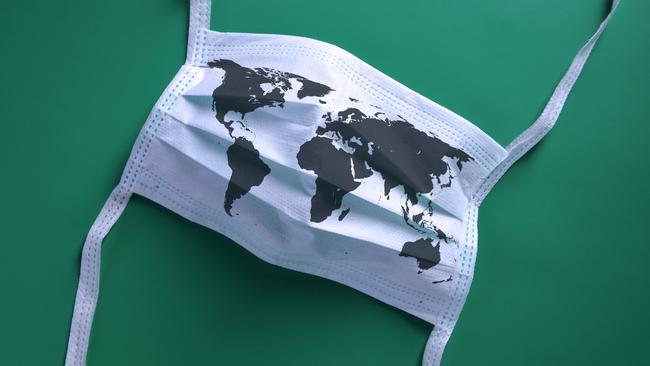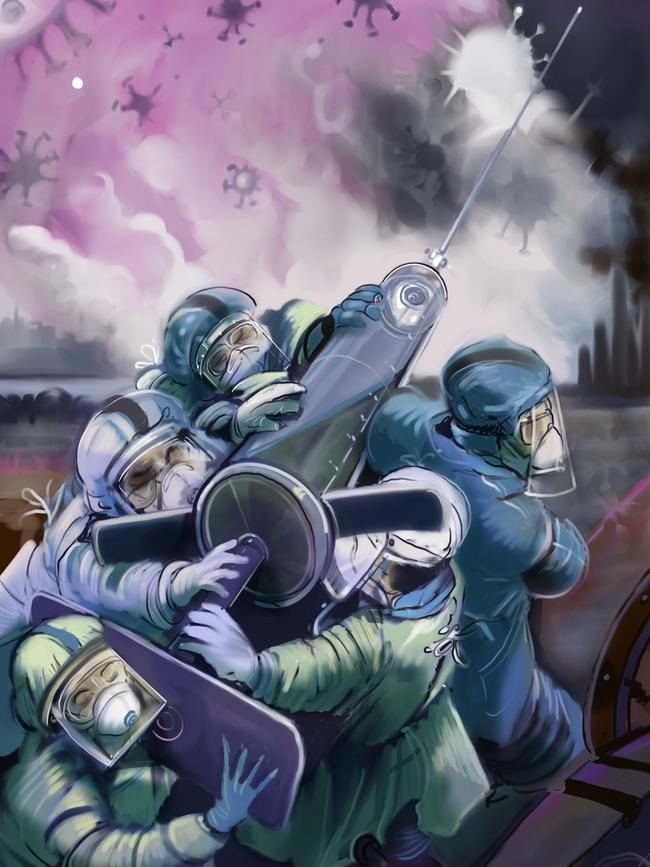Coronavirus: What will the world look like after COVID-19?

And it’s one that can help us understand the scale of what we are living through and the role it might play in the years ahead.
McNeill was studying the Spanish conquest of Mexico in the 16th century and puzzling over the ability of Hernan Cortez, starting with fewer than 600 men, to conquer the Aztec empire with its millions of inhabitants. And why, come to think of it, did the Aztec religions simply disappear, usurped by Christianity? As he pondered these questions he happened upon this: on the night the Aztecs drove Cortez out of Mexico City, an epidemic of smallpox was raging there.
This fact helped McNeill answer two key questions. Why did the Aztecs not pursue the Spaniards after driving them out of the city, instead allowing them to regroup and renew their attack in greater numbers? And why did many Aztecs conclude that the invaders enjoyed divine support and that Christianity had shown its superiority?
Indeed, the implications were far greater and led McNeill to write arguably the best analysis of how disease changes history, Plagues and Peoples.
Human beings, he wrote, established supremacy by working out how to defeat and control the animals that we can see. But the organisms we cannot see — viruses, bacteria, parasites — have proven a more redoubtable enemy. Because we did not understand these organisms for so long, most of our history comprises nothing but the combat between human beings, the one visible animal still a danger to us all.
This, however, ignores the huge role that disease has played in shaping civilisation. As humans move into new territory, they encounter microparasites against which they have yet to develop resistance. These can kill large numbers until the population and the disease accommodate each other.
McNeill traced the way civilisations eventually become single disease “pools”, where the population has developed a degree of immunity to local diseases. But when these pools connect up, as happened along trade routes that linked Asia and the West in the 14th century, the consequences can be terrible. It is possible that the Black Death killed more than half of Europe’s inhabitants.

From these observations two points stand out for us today. The first is that we are right to see our resistance to COVID-19 as a form of war. There has been much disagreement about this, with some regarding use of martial terms as silly, and the Blitz spirit as tiresome. Yet McNeill’s history suggests that macroparasites (human invaders) and microparasites (diseases) often act together, are simply visible and invisible forms of attack and often end in the same way, by reaching some sort of accommodation with the host population.
The second observation is that the impact of disease has been devastating for most civilisations that suffer it. From the falling of empires, Greek and Roman, to the strengthening of autocracies and the pharaohs, and the spread of rumours and superstition, the history of disease is deep and dolorous.
Of course we now have weapons with which to fight the unseen warriors. We can prevent the huge loss of life our ancestors experienced. Our campaign of scientific resistance is extraordinary. I am not an alarmist and I try not to be a pessimist. Yet history does make me a little less of an optimist.
There is a view — we could call it the Kumbaya view — that this might be a moment of revelation and unification. Together we have been given an insight into much that is wrong with our world and a renewed sense of unity, trust and determination that will allow us to address these ills. When this is over we will create a better world, and we may even become better people.
I hope this is right. I am always in favour of opening our eyes and being compassionate towards one another. But this is hope rather than expectation. As with all disease disasters, this one will leave the civilisation it has attacked weaker and poorer. The need for justice may have arisen, but the means to achieve it will have been diminished.
As with all similar setbacks, economic and social, there will be a political battle over resources which usually manifests itself in sharper antagonisms and less trust. Just at the moment when there will be political pressure to spend money insuring ourselves against future pandemics and other shocks, there will be much less money to do it with. And people will start to wonder if someone else might have hidden the money, or wasted it or used it on themselves.
This is not really a point about Britain, though Britain will not be immune to it. And I suspect that the differences that have split the country over this past decade may deepen. It may prove that the parts of the country hardest hit by the disease (cities generally) are not the parts hit hardest economically (rural and post-industrial areas already in decline) and this will reinforce a divide.
But I’m more concerned about the world we will live in. If we expect the financial trouble to be as deep as that of the 1930s, is it unreasonable to reflect on what happened politically in the 1930s? How dictatorships rose and sought to recoup local economic losses by invading neighbours. How whole populations supported dictatorships and scapegoated minorities.
As states battle coronavirus, governments have taken on unprecedented powers. And they have done it with the support of people who want protection. But how easy, once the initial danger has passed, will it be to get them to relinquish those powers? Especially if they can point to the danger of further infections and more deaths without them.
And the spirit of solidarity can easily curdle into one where we continue to spy on our neighbours and see others primarily as disease vectors.
An optimistic view is that the end of the pandemic will be hailed as the triumph of scientists and the final proof of the victory of experts. But there will be enough that the experts got wrong and enough the scientists couldn’t stop to feed a new wave of populism and fear of the foreign.
This is not intended as a counsel of despair. Liberty and democracy under the law, scientific knowledge and expertise, cordiality and social justice can win the struggle to come. But history suggests that struggle it will be.
The Times







In the mid-1950s, the American historian William McNeill was working on his classic The Rise of the West when he stumbled across a fact that stopped him in his tracks.